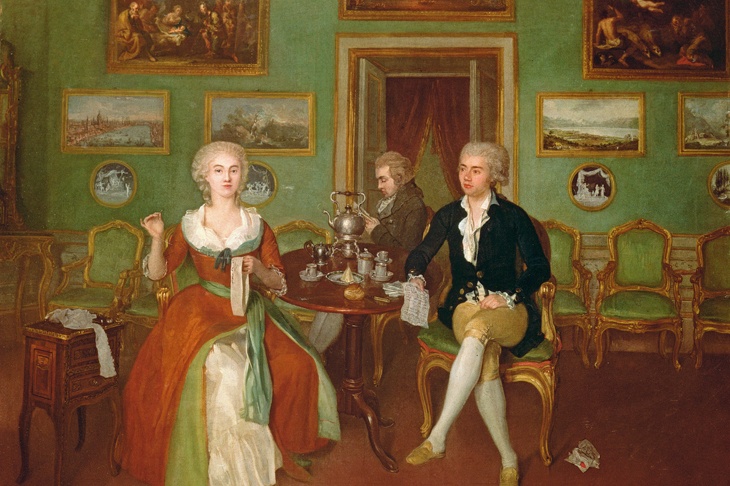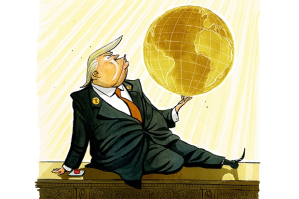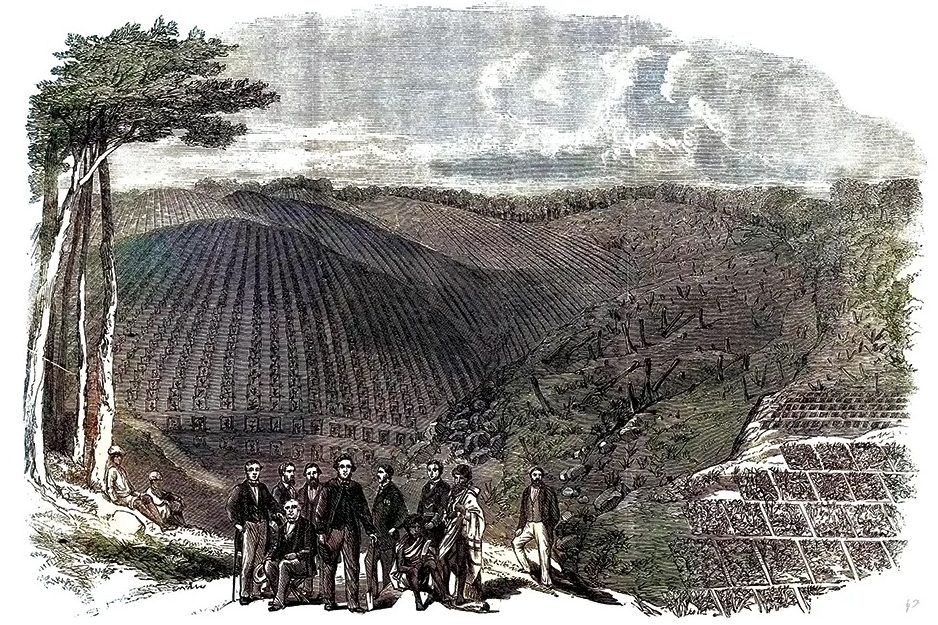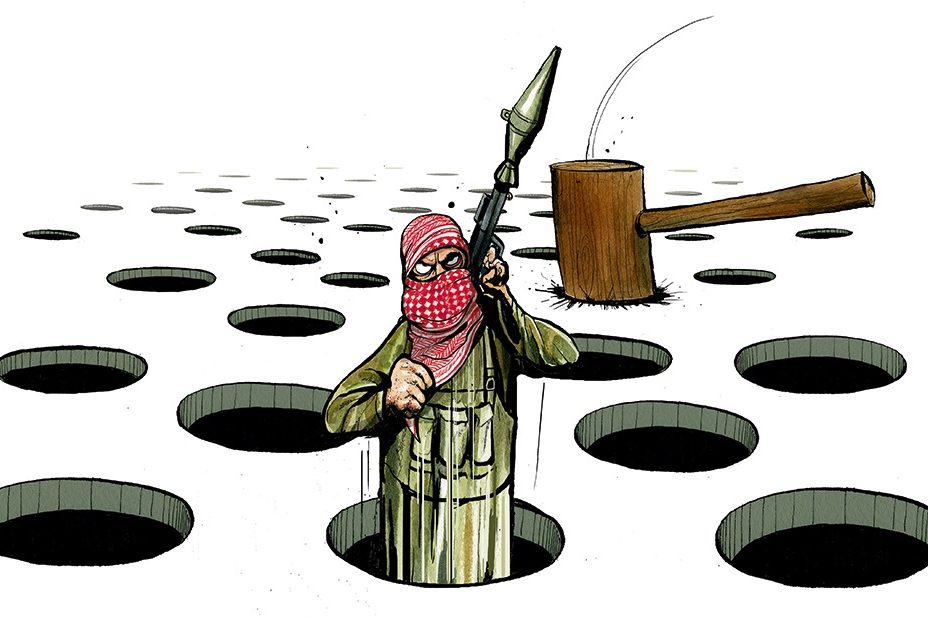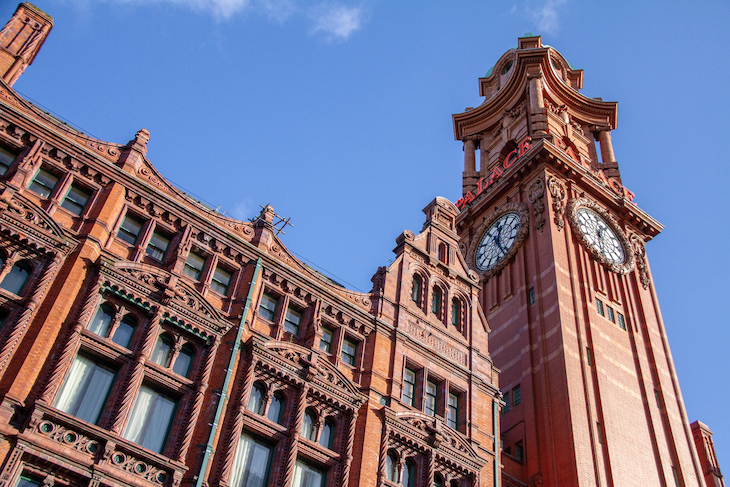In the gap between what we feel ourselves to be and what we imagine we might in different circumstances become, lies civility. Keith Thomas’s marvellous new book addresses the subject of ideal behaviour. It shows the way that early modern England formed notions of civilisation and proper conduct, in contrast to what was termed ‘the Other’. These alternative people were labelled ‘barbarians’ or ‘savages’ when found abroad or on the Celtic fringe. If the unacceptable was found within England, rural or impoverished, they would be called ‘clowns’ or ‘clodhoppers’.
The fact that these barbarians or clodhoppers might have their own notions of proper behaviour, according to which the English ruling classes might in turn be considered utter brutes, only slowly dawned. In 1615 an English traveller in Turkey noticed with astonishment that Turks withdrew to urinate, rather than piss against the nearest wall, and always washed their hands afterwards. Civilisation can be a matter of assertion.
Although this is, clearly, a single subject, it has a number of different aspects. All relate to how the English thought of themselves, and the behaviour that they somehow both embodied and ought to aspire to. Manners come into it, and the rules of engagement in war. There are notions of class engagement, both upwards and downwards. In a God-fearing age, everybody could look upwards, and George III advised the Duke of Clarence, later William IV, to ‘obey your superiors, be polite to your equals, and show good nature to your inferiors’. There are theories of racial hierarchy and of the different standing of different cultures, forming a theoretical justification of the existence of the British Empire. There are, too, the clear implications that the British examined their practice and behaviour and decided that, by extraordinary coincidence, these were exactly the things which were indispensable to a culture hoping to attain supremacy, such as through trade.
One of the things that makes Thomas’s period of 1500–1800 a rich one for investigation is that in its course a good number of issues stopped being the target of legislation and official control and became a matter of personal responsibility. The action for scandalum magnatum, under which you could be prosecuted for verbally abusing your peers, no longer resulted in damages after 1689, and recourse to the action dwindled away. In 1604, sumptuary legislation, regulating dress and consumption, was abandoned; press censorship was reduced in 1695; and from the 17th century onwards, church courts grew increasingly reluctant to prosecute scolds, troublemakers and some sexual offenders. Though there were steady calls for the enforcement of statutes against swearing, gambling and breaking the sabbath, by the 18th century the question of behaving well and appropriately had become a matter of personal judgment.
If most stuck by the rules, others more radical in temperament deliberately broke them. Quakers caused outrage by addressing everyone equally as ‘thou’. One addressed the Fourth Earl of Pembroke as ‘Phil’. The famous Duchess of Newcastle insisted on bowing rather than curtseying. Later, supporters of the French revolution made a point, like Mary Wollstonecraft and Tom Poole, of ostentatiously neglecting politeness in speech.
Civility consisted, in part, of a consideration of others — kind and obliging behaviour, interesting conversation, washing and dressing decently. The notion of civility, however, slid imperceptibly into politeness, into an idea of ‘polish’ — the two words are synonymous for much of the period — and without many people noticing, into a sense of attained superiority. The lack of connection between elegant behaviour and moral standing has often been noticed — the philosopher R.G. Collingwood claimed that ‘the most beautiful manners I have met with are in countries where men carry knives’.
Many of these rules of behaviour are absurdly arbitrary. From the 12th century to the 19th at least, it was considered unseemly to laugh out loud. Codified in published works such as Lord Chesterfield’s Letters which were hugely popular with a reading public, the rules became steadily more complicated. A hosiery manufacturer is recorded in 1776 recommending his son to acquire ‘the manners, the air, the genteel address and polite behaviour of a gentleman’ in order to be a success in trade. In response to such people’s ambition, by the 19th century rules of behaviour had become a maze designed to trap or to offer Byzantine indicators of status and origin to those in the know. ‘There is nothing more plebeian than thin bread at dinner,’ a work of 1836 advises.
These rules were largely designed both to protect existing privilege and help structure a dynamic social scene, in which people were constantly moving up and down. It was important to know not just how to behave well but how to behave well in dissipated circumstances: the rules around getting drunk go from top to bottom of society. A 17th-century preacher comments on the poor in taverns ‘throwing down their money on the table’ in their insistence to pay a round. This goes as far to explain the growth of self-conscious behaviour as Montesquieu’s insight, elaborated by Thomas’s great predecessor Norbert Elias, that ‘the more people there are in a nation who need to deal with each other and not cause displeasure, the more politeness there is’.
In a world increasingly shaped by encounters with other cultures, the English started to form theories in which their own evolved behaviour resembled the pinnacle of possible civilisation. Some of these were admirable — not to kill prisoners of war, and subsequently not to enslave them. Others were less so: in the century before 1630, 75,000 people were hanged, and the cruelty of the executions, even by international contemporary standards, is beyond belief. In other examples of behaviour, the British stood, as might be expected, roughly in the middle, less keen on cleanliness than many cultures (such as the Turks), more so than others. In 1805 a future Bishop of Calcutta, travelling, reported that ‘to pass leeward of a Russian peasant is really so terrible an event that I always avoid it if possible’.
The notion of a formal distinction between civilised and uncivilised parts of the world was long in dying. Even the League of Nations, set up after the first world war, only consisted of ‘civilised’ nations, including (Thomas points out) Nazi Germany, Soviet Russia and fascist Italy. Before that, it shaped the British attitude to the world, and underpinned the growth of the Empire. If it had some positive results, such as the outlawing of sati in India in 1829, they were often used to justify the imperial project. Other cultures were easily classified as savage, and persecuted without restraint.
Some standards on which this judgment was made seem very peculiar. Edmund Spenser claimed that if you ‘look into all countries that live in some sort by keeping of cattle… you shall find that they are both very barbarous and uncivil, and also greatly given to war’. The role of the English was to civilise the world through trade and education — it is a point in favour of the English that they rarely thought that the people of other cultures were intrinsically less human or less able than they were. The Bell Curve theory of intelligence was a long way in the future.
But against that, they did, frighteningly often, give way to recommendations that those who did not live by agriculture and cultivation should be ‘extirpated as savage and pernicious beasts’. This actually happened in Australia, and earlier underlay attitudes towards the Scots. One of the most inspiring chapters in this thrilling book explains what happened when English thinkers started to wonder about the fact that many English colonists in America who had run away to live with Indian tribes hardly ever wanted to return. Increasingly, intelligent people started to think relatively; that though the urge to behave well was a good one, there might be peoples currently considered inferior to the English whose virtues were actually superior. Where civilisation and barbarity lay was not as clear as it had once seemed.
This book is a fully realised successor to those classics by Thomas, Religion and the Decline of Magic and Man and the Natural World. In his 85th year he has produced a magnificent work, which forms a compelling framework, containing a huge body of evidence and apparently disparate ideas. The command of evidence is extraordinary, and the final result is of a huge poly-phony, as different voices disagree, conflict, reinforce each other and undermine another’s point of view. It is funny as well as heartbreaking, absurd as well as chilling. There is hardly a page without half a dozen extraordinary incidents, statements or facts — and the 100 pages of notes are a tour-de-force of learned command, intelligent investigation and compelling judgment. There can hardly be a more convincing statement of what civilisation means than Keith Thomas’s own work.



